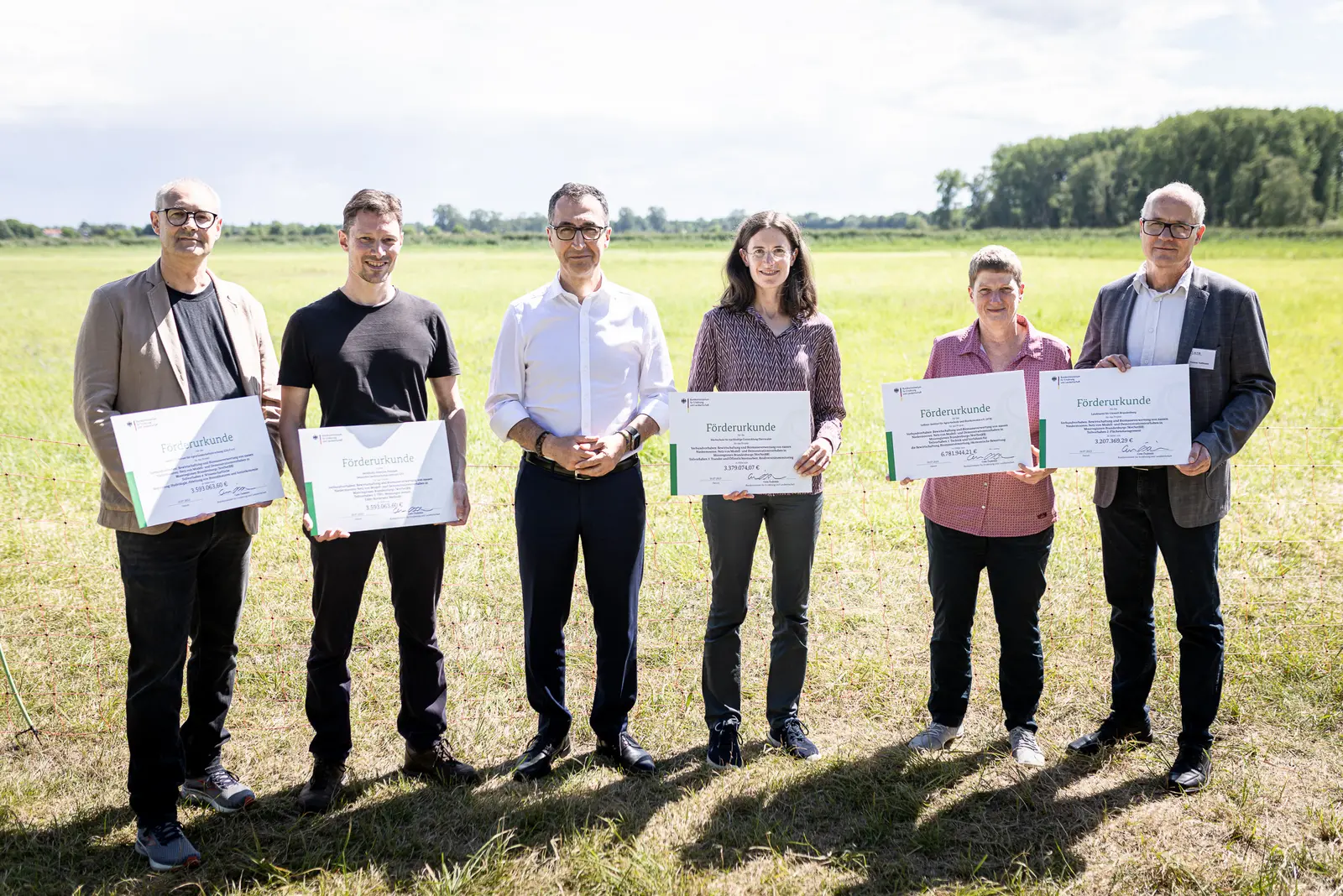Joint project "WetNetBB - Management and biomass utilisation of wet fens: Network of model and demonstration projects in peatland regions of Brandenburg"
The Eberswalde University for Sustainable Development (HNEE), the Brandenburg State Office for the Environment (Landesamt für Umwelt Brandenburg, LfU), the Leibniz Centre for Agricultural Landscape Research (Leibniz-Zentrum für Agrarlandschaftsforschung e. V., ZALF) and the German Research Centre for Geosciences (Deutsche GeoForschungsZentrum, GFZ) will be testing and researching over the next nine years in the joint project "WetNetBB - Management and Biomass Utilisation of Wet Fens: Network of model and demonstration projects in peatland regions of Brandenburg", led by the Leibniz Institute for Agricultural Engineering and Bioeconomy (Leibniz-Institut für Agrartechnik und Bioökonomie, ATB), together with many practice partners*, they will be researching sustainable and economic strategies for rewetting and peatland utilisation. The project is funded by the Federal Ministry of Food and Agriculture (Bundesministerium für Ernährung und Landwirtschaft, BMEL). The Federal Minister of Food and Agriculture, Cem Özdemir, handed over funding decisions totalling 18.4 million euros in Gollwitz, Brandenburg.

Decades of drainage have greatly reduced the ability of former peatlands to retain water in the landscape. The CO2 bound in the peat has been and continues to be released, causing the soil to lose mass and the typical peatland flora and fauna to be lost as a result of drainage.
Raising the water levels reduces these processes. In the "WetNetBB" project, the water level is therefore being equalised to the original level in four areas totalling 2,430 hectares. In order to enable sustainable and profitable agricultural utilisation under these changed conditions, new value chains are being developed, tested and researched in the joint project. Marketing and utilisation opportunities are also being created for the products produced.
HNEE is involved in two areas of the project with Professors Anna Häring, Inga Schleip and Vera Luthardt as well as other scientists:
- Thematic area of knowledge transfer and public relations: considerable conflicts of objectives can arise when raising water levels in fenland areas due to historical demands on the land. Successful participation and communication can be seen as an essential prerequisite for the success of rewetting projects. The core of the transfer work will be an innovation forum for wet peatland management, where long-term networking will enable an exchange at eye level
- On the other hand, HNEE is involved in the scientific monitoring of the overall project and is responsible for part of the ecological monitoring. This involves observing and analysing the changes in site characteristics caused by waterlogging and the effect on biomass. In addition, the effects of waterlogging and changes in utilisation on the flora and fauna of the areas are being investigated. In addition to understanding the change processes, one aim is to derive recommendations for the conservation and promotion of biodiversity in rewetting projects.
The HNEE researchers have 3,379,074.07 euros at their disposal for these tasks over the next nine years.
WetNetBB comprises the modules of land management, biomass utilisation, transfer, public relations and scientific support. Research will be conducted in four representative peatland-rich model regions (Rhinluch/Havelland, Middle Havel, Uckertal-Randowbruch and Spreewald). The aim is to achieve a network of model and demonstration projects for the utilisation of wet fens with representative fen areas, biomass utilisation paths and relevant stakeholders in Brandenburg.
Note on image material
The photos available here may be used for reporting purposes. Please note the copyright notice © BMEL / Photothek